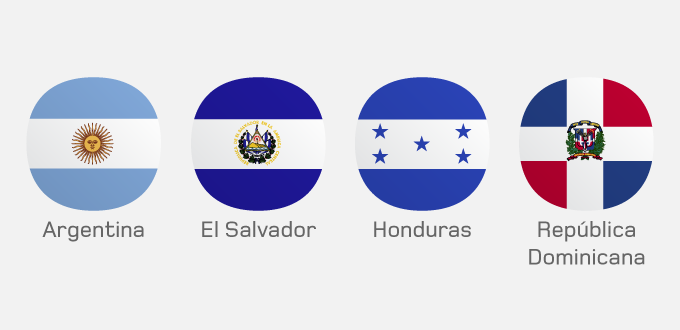One-on-One Meetings with LACNIC Customers
29/11/2018

This month, LACNIC visited nine Internet companies and organizations in the Dominican Republic, thus completing its third annual tour of customer meetings.
Including this trip, this year the LACNIC Services department completed 45 personalized visits to clients in four different countries of the LAC region (Argentina, Dominican Republic, Honduras and El Salvador).
The purpose of these meetings was to offer information on IPv6 deployment and IPv4 address exhaustion in the region, as well as to try to involve the clients in issues that are relevant to the Internet in Latin America and the Caribbean and in LACNIC’s various events and activities. “Our goal is to help our clients join the LACNIC community and increase their participation in the institutional life of the organization,” said Paula Manci, Head of Membership Services at LACNIC.
The countries included in this year’s meeting schedule have very different situations in terms of IPv6 deployment. While Argentina has a deployment rate of 7.60%, a number considered acceptable for the region, the Dominican Republic (1.31%), Honduras (0.01%) and El Salvador (0.01%) are in the very early stages of IPv6 deployment. The regional ranking of IPv6 deployment is led by Uruguay with 31.5%, followed by Brazil with 27.5% and Ecuador with 20%.
“The reality is very different in each country. Those with very low deployment levels do not perceive the urgency of deploying IPv6 networks, nor do they see this as a business opportunity,” noted Juan Carlos Alonso, Head of IT Operations at LACNIC and part of the team that visited the clients.
In the Dominican Republic, the country visited during the final leg of the tour, Alonso noticed that customers were more concerned about “obtaining IPv4 addresses” than about deploying new technologies. “This is a mistake. Deploying IPv6 networks will allow them to continue doing business on the Internet and offering new services,” he added.
One of the main concerns among companies is the lack of IPv6 training for their staff. In this regard, during each meeting Alonso confirmed that LACNIC offers free training programs for its members through the organization’s online Campus, including courses on basic and advanced IPv6.
Manci stressed that clients appreciate these in-person visits because they allow them to learn first-hand about all the benefits included with their LACNIC membership.
LACNIC’s Services department has been implementing its personalized visits program for three years, during which meetings have been held with 228 companies and member organizations in 16 different countries around the region.
(Free access, no subscription required)